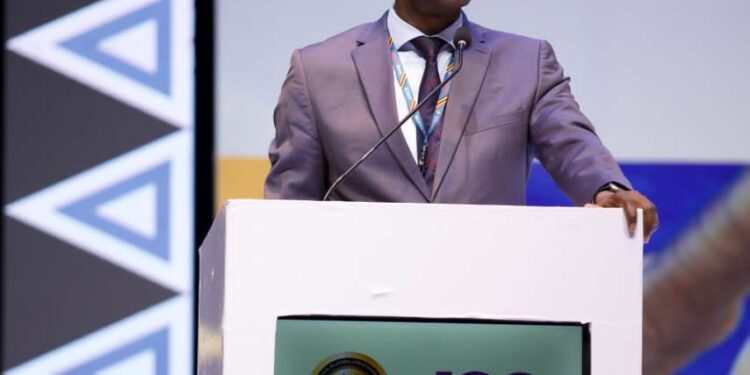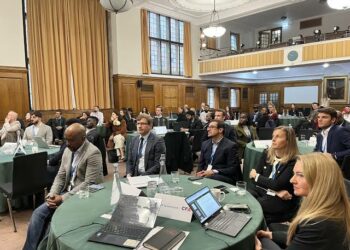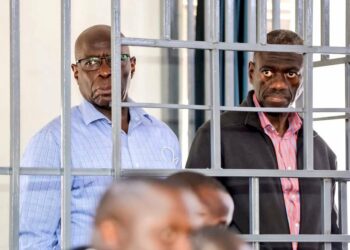At this year’s High-Level Economic Forum (EGF), Permanent Secretary of the Ministry of Finance, Planning, and Economic Development, Ramathan Ggoobi, delivered an inspiring keynote address, highlighting Uganda’s impressive economic resilience and unveiling a bold vision for future growth.
Under the theme “Seizing Opportunities for Structural Transformation to Increase Productivity and Resilience,” PS Ggoobi underscored the government’s commitment to achieving inclusive economic transformation by 2040.
Addressing delegates at the opening of the event on Thursday held at Serena Hotel Kampala, Ggoobi proudly noted Uganda’s remarkable economic performance in the face of global challenges, stating, “Despite tighter financial conditions and supply chain disruptions, Uganda has shown resilience by achieving a growth rate of 6.0% in the fiscal year 2023/24. This performance significantly exceeds the Sub-Saharan Africa average of 3.8% and the global average of 3.2% for 2024.” He attributed this growth to strategic investments in infrastructure, human capital, and deliberate government programs like the Parish Development Model (PDM), which bolstered agriculture and agro-industrialization.
Highlighting Uganda’s success in attracting foreign investment, Ggoobi said, “Total foreign direct investments have surged to $3.01 billion as of April 2024, particularly in the oil and gas sector, sparking economic activity in infrastructure and services.” He further noted, “Remittances have also risen to $1.43 billion in 2023, reflecting confidence in Uganda’s economic prospects.”
PS Ggoobi was candid about the challenges ahead, pointing to climate change as a significant risk. “Climate change is not just an environmental issue; it is an economic one,” he remarked. “It disrupts agricultural production, damages infrastructure, and increases government expenditure on social services while reducing revenue. With agriculture accounting for nearly a quarter of Uganda’s GDP, we cannot afford to ignore the impact of climate change.”
Looking forward, He outlined an ambitious roadmap to transform Uganda’s economy from $50 billion to $500 billion by 2040. “Our strategy focuses on four key sectors: agro-industrialization, tourism, mineral development (including oil and gas), and science, technology, and innovation (STI),” he explained. “We aim to double GDP every five years, increase per capita GDP from $1,146 to $7,000 by 2040, and significantly boost savings and foreign direct investment inflows.”
Ggoobi emphasized that achieving these targets requires a collective effort to harness opportunities and overcome challenges. “We must leverage climate change as a growth opportunity, promote industrial development, boost exports, and use urbanization to enhance economic opportunities,” he stated. “By focusing on high-productivity services like tourism and business services, we can drive diversification and innovation essential for our growth ambitions.”
In closing, PS Ggoobi expressed optimism about Uganda’s economic future, saying, “This forum is not just about dialogue; it is about action. We are here to chart a path that ensures every Ugandan benefits from the country’s economic progress. Together, we will build a resilient, prosperous, and inclusive economy by 2040.”
Ggoobi’s address set the tone for this year’s Economic Growth Forum, underscoring Uganda’s potential to achieve extraordinary growth and development despite global uncertainties.
Do you have a story in your community or an opinion to share with us: Email us at editorial@watchdoguganda.com












